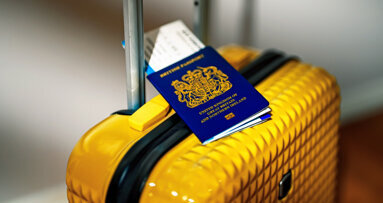LONDON, England: Driven by the NHS dental crisis, an increasing number of UK patients seeking cheaper dental work overseas are encountering unexpected complications, according to a recent feature by BBC News. While the initial outlay may appear attractive, many are discovering that follow-up care and regulatory protection can be problematic and that long-term costs can be significant. For dentists at home, it is imperative that prudent advice about these risks be provided to patients considering such treatment overseas.
The report highlights the growing trend of dental tourism—often drawing patients with lower costs and the promise of a quicker smile transformation. However, the article emphasises the risks associated with this choice: when things go wrong, returning home often means navigating care gaps and limited avenues of recourse.
As reported on by Dental Tribune International, dental tourism among UK patients, particularly to countries such as Turkey, has been steadily on the rise since the lifting of travel restrictions associated with the COVID-19 pandemic. UK dental professionals are increasingly seeing the aftermath of these overseas treatments—including poorly fitted work, infections, implant failure and the need for corrective procedures. Many patients under-estimate the difficulty of managing complications once they are back in the UK. Without the same legal and regulatory protections as domestic treatment, patients may find themselves unable to claim for damages, contact the original practitioner or obtain treatment assurance from abroad.
Cost-savings can prove illusory. While treatment fees might be lower overseas, subsequent remedial work undertaken in the UK often costs far more than what a routine local treatment would have, something also experienced by Australian dental tourists. Clinics abroad may offer enticing promotional packages—covering flights, accommodation and dental work—but may not adequately address postoperative care, continuity of treatment, or the complexities of follow-up and emergency support.
From a regulatory perspective, UK bodies are increasingly urging patients to ensure that they thoroughly research the credentials of the overseas provider and understand the full treatment plan, including aftercare, and are advising patients that UK clinics may refuse to accept responsibility for work done abroad. The article calls for better public awareness of these issues and suggests that patients factor in hidden costs and risks—not just the headline price.
For dental professionals, the growing prevalence of complications linked to dental tourism underscores the importance of patient education, continuity of care and professional collaboration. While the General Dental Council and the Dental Defence Society provide guidance on managing patients treated abroad, this advice remains largely general in scope. There is a need for detailed, standardised professional protocols—covering documentation, consent and post-treatment management—to support consistent and ethically responsible care for patients returning from overseas treatment.
Topics:
Tags:
LIVERPOOL, England: Dental tourism has seen significant growth in recent years, particularly among younger demographics influenced by social media trends. A...
BRISBANE, Australia: The rise of dental tourism over recent years has been remarkable. Driven mainly by soaring dental costs and poor public funding, ...
LONDON, UK: According to a recent survey carried out by the British Dental Association (BDA), an increasing number of dental patients in the UK are seeking ...
Live webinar
Wed. 4 March 2026
1:00 am UTC (London)
Dr. Vasiliki Maseli DDS, MS, EdM
Live webinar
Wed. 4 March 2026
5:00 pm UTC (London)
Munther Sulieman LDS RCS (Eng) BDS (Lond) MSc PhD
Live webinar
Wed. 4 March 2026
6:00 pm UTC (London)
Live webinar
Thu. 5 March 2026
1:30 am UTC (London)
Lancette VanGuilder BS, RDH, PHEDH, CEAS, FADHA
Live webinar
Fri. 6 March 2026
8:00 am UTC (London)
Live webinar
Tue. 10 March 2026
8:00 am UTC (London)
Assoc. Prof. Aaron Davis, Prof. Sarah Baker
Live webinar
Wed. 11 March 2026
12:00 am UTC (London)
Dr. Vasiliki Maseli DDS, MS, EdM



 Austria / Österreich
Austria / Österreich
 Bosnia and Herzegovina / Босна и Херцеговина
Bosnia and Herzegovina / Босна и Херцеговина
 Bulgaria / България
Bulgaria / България
 Croatia / Hrvatska
Croatia / Hrvatska
 Czech Republic & Slovakia / Česká republika & Slovensko
Czech Republic & Slovakia / Česká republika & Slovensko
 France / France
France / France
 Germany / Deutschland
Germany / Deutschland
 Greece / ΕΛΛΑΔΑ
Greece / ΕΛΛΑΔΑ
 Hungary / Hungary
Hungary / Hungary
 Italy / Italia
Italy / Italia
 Netherlands / Nederland
Netherlands / Nederland
 Nordic / Nordic
Nordic / Nordic
 Poland / Polska
Poland / Polska
 Portugal / Portugal
Portugal / Portugal
 Romania & Moldova / România & Moldova
Romania & Moldova / România & Moldova
 Slovenia / Slovenija
Slovenia / Slovenija
 Serbia & Montenegro / Србија и Црна Гора
Serbia & Montenegro / Србија и Црна Гора
 Spain / España
Spain / España
 Switzerland / Schweiz
Switzerland / Schweiz
 Turkey / Türkiye
Turkey / Türkiye
 UK & Ireland / UK & Ireland
UK & Ireland / UK & Ireland
 International / International
International / International
 Brazil / Brasil
Brazil / Brasil
 Canada / Canada
Canada / Canada
 Latin America / Latinoamérica
Latin America / Latinoamérica
 USA / USA
USA / USA
 China / 中国
China / 中国
 India / भारत गणराज्य
India / भारत गणराज्य
 Pakistan / Pākistān
Pakistan / Pākistān
 Vietnam / Việt Nam
Vietnam / Việt Nam
 ASEAN / ASEAN
ASEAN / ASEAN
 Israel / מְדִינַת יִשְׂרָאֵל
Israel / מְדִינַת יִשְׂרָאֵל
 Algeria, Morocco & Tunisia / الجزائر والمغرب وتونس
Algeria, Morocco & Tunisia / الجزائر والمغرب وتونس
 Middle East / Middle East
Middle East / Middle East









































To post a reply please login or register